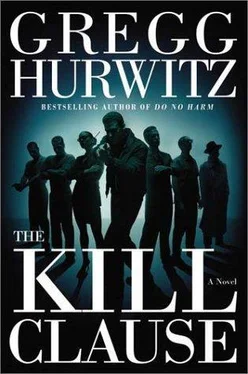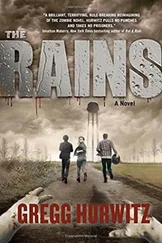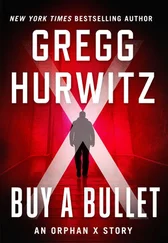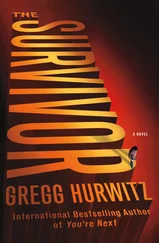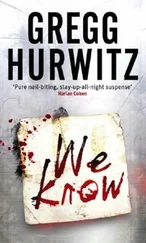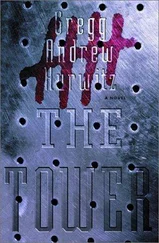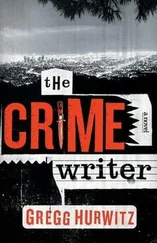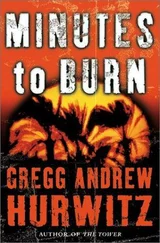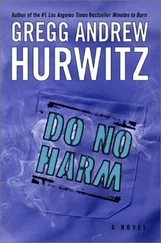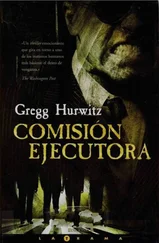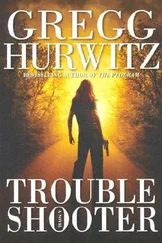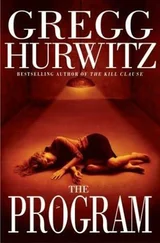Gregg Hurwitz - The Kill Clause
Здесь есть возможность читать онлайн «Gregg Hurwitz - The Kill Clause» весь текст электронной книги совершенно бесплатно (целиком полную версию без сокращений). В некоторых случаях можно слушать аудио, скачать через торрент в формате fb2 и присутствует краткое содержание. Жанр: Триллер, на английском языке. Описание произведения, (предисловие) а так же отзывы посетителей доступны на портале библиотеки ЛибКат.
- Название:The Kill Clause
- Автор:
- Жанр:
- Год:неизвестен
- ISBN:нет данных
- Рейтинг книги:4 / 5. Голосов: 1
-
Избранное:Добавить в избранное
- Отзывы:
-
Ваша оценка:
- 80
- 1
- 2
- 3
- 4
- 5
The Kill Clause: краткое содержание, описание и аннотация
Предлагаем к чтению аннотацию, описание, краткое содержание или предисловие (зависит от того, что написал сам автор книги «The Kill Clause»). Если вы не нашли необходимую информацию о книге — напишите в комментариях, мы постараемся отыскать её.
The Kill Clause — читать онлайн бесплатно полную книгу (весь текст) целиком
Ниже представлен текст книги, разбитый по страницам. Система сохранения места последней прочитанной страницы, позволяет с удобством читать онлайн бесплатно книгу «The Kill Clause», без необходимости каждый раз заново искать на чём Вы остановились. Поставьте закладку, и сможете в любой момент перейти на страницу, на которой закончили чтение.
Интервал:
Закладка:
Jim Denley-just moved from Brooklyn, unfamiliar with Los Angeles.
Ted Maybeck-anxiety disorder potential.
Glancing back at the drawer, Tim saw that its bottom contents were, at last, revealed. Seven black binders.
His stomach clenched when he saw the white label on the last spine. ROGER KINDELL.
He pulled out the binder, alarmed by its lightness, and opened it.
Empty.
He stared for a moment at the blank binder interior, as if the enormity of his disappointment might force documents to materialize.
Rayner must have anticipated Tim’s coming after the Kindell file at some point. He certainly had amassed enough personality data on Tim to make precise projections of his future behavior. Since Rayner believed that the Kindell file was the key item he’d need to keep out of Tim’s hands to assure Tim’s continued cooperation, he would have placed it in a location even more secure than a locked drawer in a locked office.
The thin plastic film of the cover’s inside flap bumped slightly up. Tim dug in the pocket, his fingertips touching metal. A safety-deposit key, #201-of course, no bank name imprinted on the brass. He pocketed it.
Clearing his head, he refocused on his objective. Not how he’d been maneuvered. Not the ways Rayner, Robert, and Mitchell had pried into his personal life. Not Kindell.
Protecting the targets. Particularly the one likely next in line.
With a sweep of his forearm, he cleared the desk of papers bearing his name. He slid Rhythm Jones’s binder before him, pleased to note its heft. He spent about an hour and a half hunched over the desk, flipping through Rhythm’s file and biting his bottom lip a la Bill Clinton in empathy mode.
Almost every character appearing in the court transcript and eyewitness testimonies linked to Rhythm was a transient or a nothing-to-lose punk who’d be tough to leverage. Druggies, pimps, low-rent dealers. It made for tough tracking. The best angle Tim could come up with was a Jones cousin, Delroy, who’d made good, graduating high school and heading off to USC on a track scholarship. Rhythm’s defense attorney, in a rare moment of adequacy, had dragged the kid in as a character witness. The prosecution had tried to discredit Delroy by outing him as a lookout on a convenience-store stickup when he was twelve, a juvy transgression the DA had managed to get unsealed.
Tim slipped out of Rayner’s office, assorted binders and files rising from the cradle of his hands, secured by his chin. Hurrying to his car, he ignored the parking ticket adhered to the windshield and dumped the paperwork in the trunk.
He drove over to USC, pulled aside one of the many free-roving security guards, drowned him in law-enforcement patois, and asked him to be a team player and call HQ to get a dorm-room number. The guard complied all too willingly. After relaying the information, he shook his square head, drowsy eyes dulled with either stupidity or the friction wear of walking a foot beat in South Central, and muttered, “Black kids,” with equal parts lassitude and disdain.
Delroy’s dorm-room door was opened by a cute, dark-skinned girl clutching a fat science textbook and wearing Delroy’s track jersey like a dress. She didn’t ask to see Tim’s badge when he identified himself. He took note of the uneasiness that flickered across her face, her rigidly polite tone, and added impersonating an asshole white cop to the list of reasons he disgusted himself today.
Yes, this was Delroy’s dorm room. No, he wasn’t here. He’d gone door-to-dooring in the West Side, collecting donations for an adult-literacy program he volunteered for in South Central. He’d gone alone. He had no cell phone, and he’d left his pager behind. She didn’t know where he’d started or what section of the city he was covering, but she did know he’d be back to run the football coliseum stairs at around 6:00 P.M., as he did every preseason night. Tim told her not to answer any questions about Delroy to anyone else and always to ask to see a badge before opening the door, and she’d regarded him with barely restrained annoyance until he’d left.
Outside, he called the adult-literacy program’s offices, but they were closed Thursdays through Sundays, which Tim thought might have made a good joke were he in a better mood.
At Doug Kay’s salvage yard, Tim traded out the BMW for a ’90 Acura with a dented side and clean plates. Kay received the Beemer keys with a pleased little smile, handed Tim an Integra key on a bent paper clip, and scurried off, losing himself among cubes of metal before Tim could change his mind.
Tim spent the next two hours stopping in at hardware stores, costume shops, and pharmacies, assembling what veteran deputies and crotchety old-schoolers call a war bag. Then he went home for his gun.
When he pulled up, he saw Dray sitting at the kitchen table sipping coffee and reading the paper as she always did afternoons when she got home from the graveyard shift. He got out of the car and stood on the walk regarding her, his house, for a moment of relative calm. Mac was nowhere in sight. Ginny could have been at school.
Dray looked up, saw him standing outside momentarily intoxicated by the spell of what once was, and she was up and at the front door, ushering him in to the kitchen table as he cleared his head, self-exorcising the Ghost of Christmas Past and returning to reality like an autodefenestrated body slapping sidewalk.
“What the hell happened? Bear’s called three times. He’s onto you, I think.”
“Yes. And in an hour and a half, he’s going to know everything.” Tim shot a nervous glance down the hall. “Where’s Mac?”
Dray gestured at the window. At the far side of the backyard, Mac was sitting up on the picnic table, feet on the bench, facing away from the house. Three empty bottles of Rolling Rock were lined beside him; he was working on a fourth. “He’s busy sulking-got cut from SWAT today.”
“Shocking.”
“What went down?”
He relayed the events of the past fifteen hours, and she listened in silence, though her face spoke prolifically. He finished, and they sat together a moment.
When she studied him, he braced himself against the heat of judgment in her stare, but it was absent. Maybe she was too tired to give it. Maybe he was too tired to pick it up. Or maybe her concern had mellowed her anger into a sort of weary contemplation.
“Why the hell would they kill Rayner and Ananberg?” she said. “They didn’t have to. They could’ve gotten those files without killing them.” She pressed the skin at her temples. “Those men, who would kill just like that. Unnecessarily. For barely a motive. Those men have been watching us for months? Surveilling us with our daughter?”
His throat was so dry it hurt when he spoke. “Yes.”
“Jesus, they put their time in to get you.” Her hands balled into fists, and she thunked the table so hard her coffee cup jumped and hit the floor tile a good four feet away. In her face he saw the expression mothers of fugitives wore when he came to haul their sons away. It was a funereal expression-extrapolated loss, sorrow compounded with inevitability. She pressed the flat of her fist square against her forehead, hiding her eyes. “If you do what’s right, if you come clean to protect those targets, you’re going to wind up in prison,” she said.
“Probably.”
When she lowered her hand, four strokes of white remained on her skin where her fingers had been. “Do you feel like a hypocrite?”
He tried to gauge her anger by reading her eyes. “Yes. But I’d rather try to be right than consistent.” The reason he felt as if he hadn’t slept in days, he realized, was that he hadn’t. He slid his hand into the empty pocket of his hip holster; he’d put the holster back on during the drive over.
Читать дальшеИнтервал:
Закладка:
Похожие книги на «The Kill Clause»
Представляем Вашему вниманию похожие книги на «The Kill Clause» списком для выбора. Мы отобрали схожую по названию и смыслу литературу в надежде предоставить читателям больше вариантов отыскать новые, интересные, ещё непрочитанные произведения.
Обсуждение, отзывы о книге «The Kill Clause» и просто собственные мнения читателей. Оставьте ваши комментарии, напишите, что Вы думаете о произведении, его смысле или главных героях. Укажите что конкретно понравилось, а что нет, и почему Вы так считаете.
